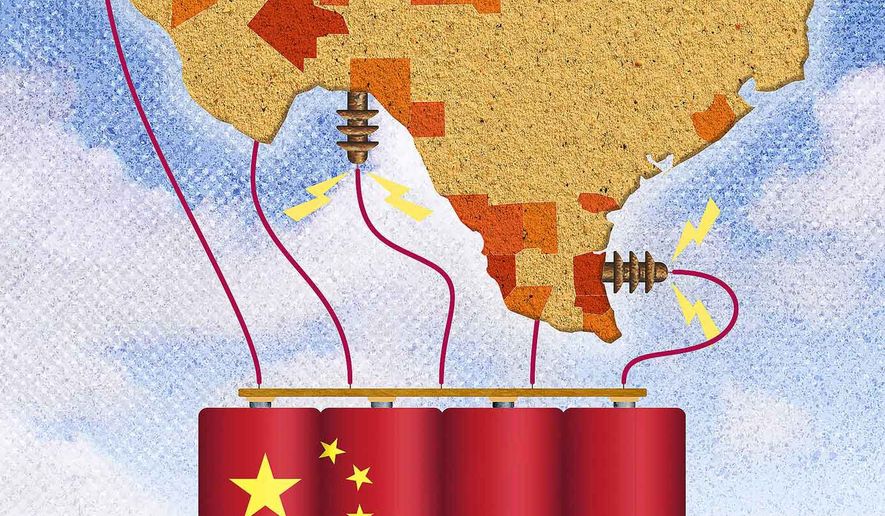OPINION:
Blackouts last month in Texas and parts of the Midwest should have been a snowball to the face of policymakers still complacent about the collective vulnerability of our energy infrastructure. They opted instead to debate de-icing windmills.
In its quest for global communist hegemony, China has learned from its junior partner Russia that energy blackmail works. Moscow uses the tactic to lord over Europe. Now China may be eyeing it here as well if we let them.
The U.S. must immediately ban Chinese companies or those tied to Beijing from investing in our energy markets or providing baseload power to the grid. Chinese involvement in our critical infrastructure should be regarded as no different from national security threats Huawei and the Communist regime’s Belt and Road Initiative.
In 1999, the Texas legislature passed a mandate which required the state’s utilities to get more power from renewable sources. Beijing jumped at the opportunity. Though less successful than its solar exports, Chinese wind power, backed by financing connected to the Communist regime, offered a cheaper alternative to turbines made here.
The first Chinese-developed wind-power project in the U.S. was announced in 2009. Located on 36,000 acres in West Texas — more than twice the size of Manhattan — the bold project was even slated to receive about $450 million from President Obama’s stimulus bill. Ultimately, after some controversy the project was shelved.
Instead of raising alarm bells over China’s aggressive pursuit of U.S. energy resources, Washington and Texas did nothing. The buying-and-building spree by Chinese-connected wind companies continued. In 2012, 2015, 2016 and again in 2017, Chinese interests bought tens of thousands of additional acres in Texas for wind-power development. By 2019, Chinese entities owned nearly 200,000 acres in the U.S. worth $1.9 billion.
Despite an invasion of its critical infrastructure, Texas continues to allow foreign sales of its land today. A quarter of its electricity generation comes from wind, much of it made in China. Beijing has made nearly $17 billion in total investment transactions in the U.S. energy sector by fall 2020.
In 2018, President Trump signed the Foreign Investment Risk Review Modernization Act into law, giving a panel of federal agencies known as the Committee on Foreign Investment in the United States enhanced powers to review foreign investments in undeveloped land located near federal buildings and military installations.
That was followed in May 2020 by his “Securing the United States Bulk-Power System (BPS)” order, which declared a national emergency and “prohibits Federal agencies and US persons from acquiring, transferring, or installing BPS equipment in which any foreign country or foreign national has any interest and the transaction poses an unacceptable risk to national security” — a not-so-veiled message to China and Russia.
That same month, U.S. authorities seized a 250-ton Chinese-manufactured transformer from our electrical grid on which hardware “backdoors” for malicious computer codes were discovered.
Elsewhere, China is suspected of hacking an outage in Mumbai, India, that left 20 million without power as retaliation for incursions along a contested Himalayan border.
Mr. Trump’s actions were positive steps, but they stopped short of preventing China from buying land or selling products that would gain them a foothold in the U.S. power grid.
On his first day in office, President Biden reversed course, inexplicably suspending the Trump measures, sweeping aside a legitimate national security concern for the sake of his climate-change agenda.
The Chinese Communist Party, along with useful idiots in the U.S. environmental lobby, is advancing a multi-pronged strategy to project influence and power within our borders. Land grabs and energy infrastructure need to be off limits to China. If Mr. Biden won’t do it, states like Texas should. Failure here will mean the loss of our economic advantage and facing a future like Europe’s, in which we are increasingly reliant on a hostile authoritarian regime for basic energy needs.
• Tom Basile, host of Newsmax Television’s “America Right Now,” is an author and adjunct professor at Fordham University’s Graduate School of Arts and Sciences, where he teaches earned media strategy.




Please read our comment policy before commenting.